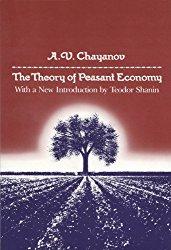
Erik Olin Wright is one of the genuinely important contributors to a progressive sociology in the United States. He was one of the first wave of social scientists and philosophers who created the movement of analytical Marxism in the 1970s and 1980s, and for more than thirty years he has organized much of his own thinking and the collaborations of a number of other scholars around the idea of a "real utopia." Essentially the idea is to make use of good social science research and theory to help to formulate visions of the future of society that incorporate an emancipatory vision of human community while imagining institutions and social arrangements that are feasible and attainable. Erik's book Envisioning Real Utopias provides a manifesto and extensive development of the ideas (link).
The general perspective that Wright has taken in the Real Utopias project is egalitarian and emancipatory. The project has focused on a number of key topics: universal basic income, market socialism, deliberative democracy, alternatives to capitalism, and gender equality, to name just a few. (Earlier posts on UnderstandingSociety have highlighted some of the goals of the real utopias project (link, link). Erik's webpage provides more details.)
Erik agreed to have a conversation with me about the rationale and central convictions that underlie the real utopias project, and the discussion is a valuable contribution to some of the hardest problems of social and political life that we now face -- rising inequalities of wellbeing and opportunity and the emergence of a politics of intolerance, division, and hate.
Thanks, Erik, for spending an afternoon with me thinking and talking about these important challenges. Progressives need new ideas and new imagination about what a future world can look like, and the real utopias project is succeeding in doing exactly that.
(I chose to illustrate this post with the cover of A. V. Chayanov's Theory of Peasant Economy because Chayanov too was a "real utopian," seeking to identify a feasible road to rural emancipation that was neither capitalist nor a version of centralized authoritarian communism. Chayanov was arrested and executed by the Stalinist Soviet secret police in 1937.)
Here is a link to the interview on YouTube (link). Readers who would like to view other interviews with innovative social scientists can click the "interview" page on the right (link).
